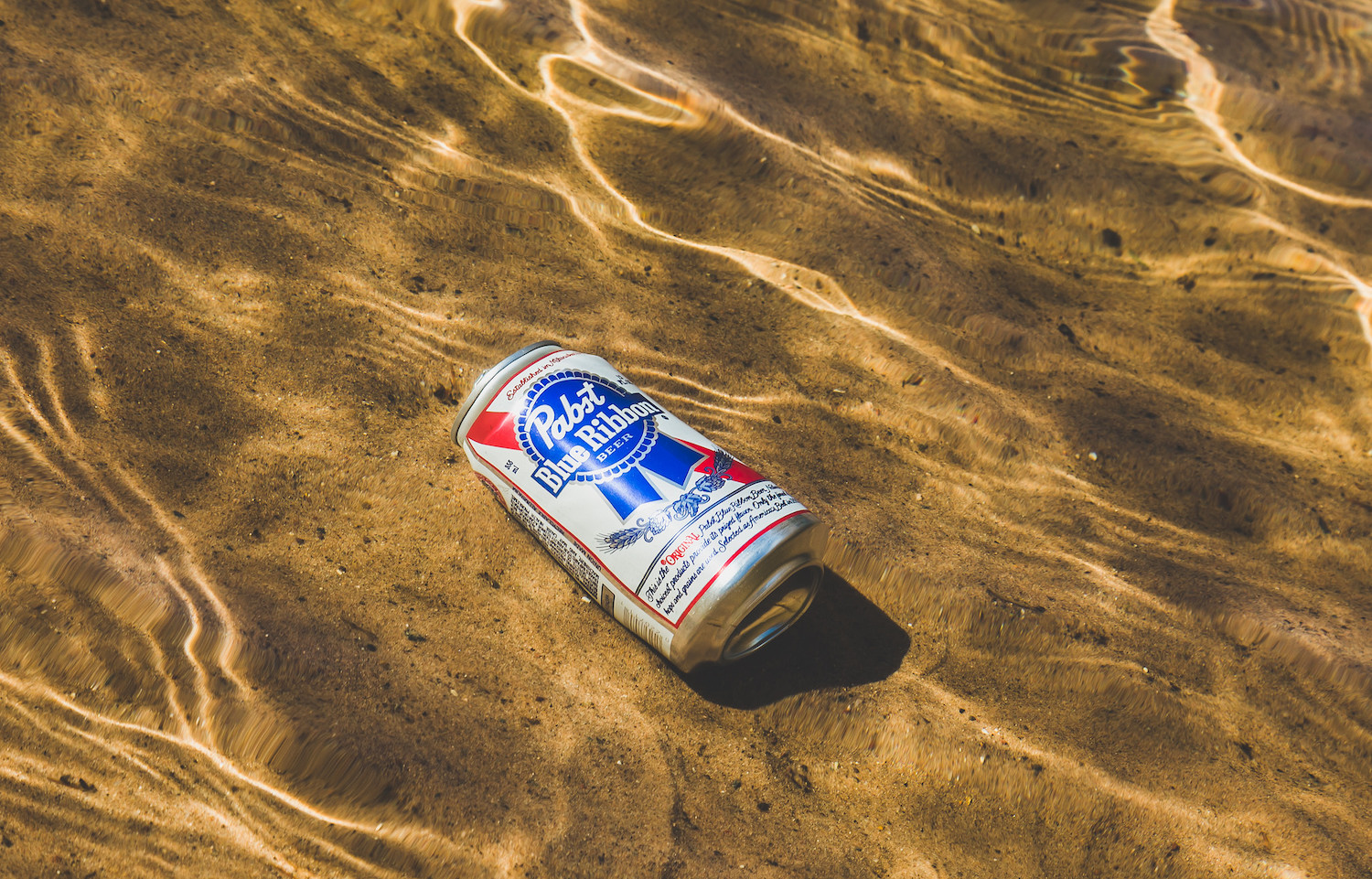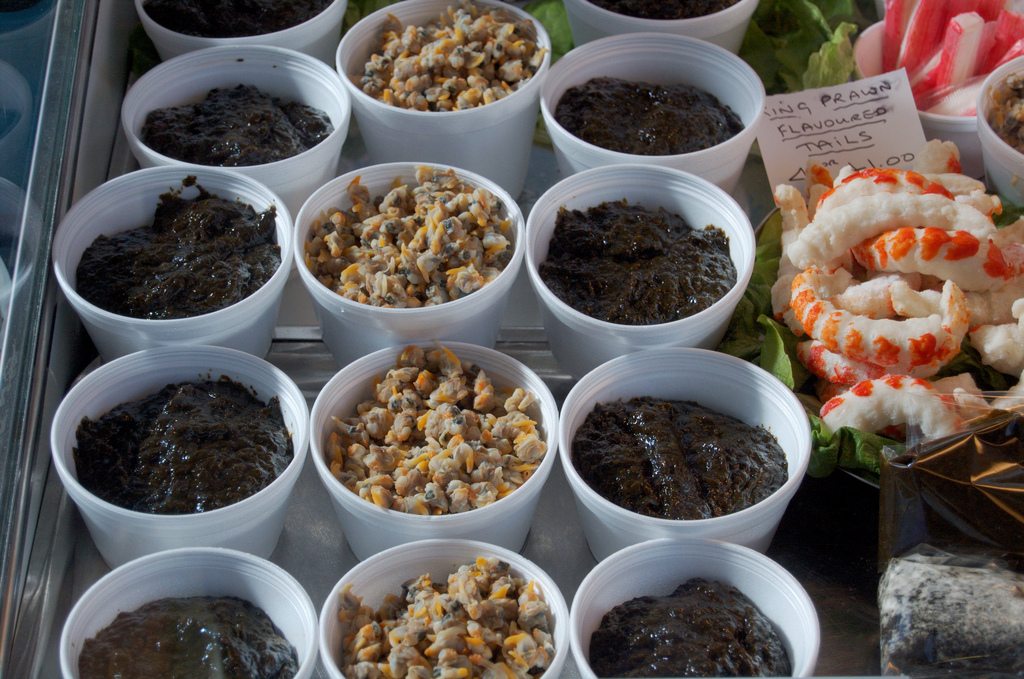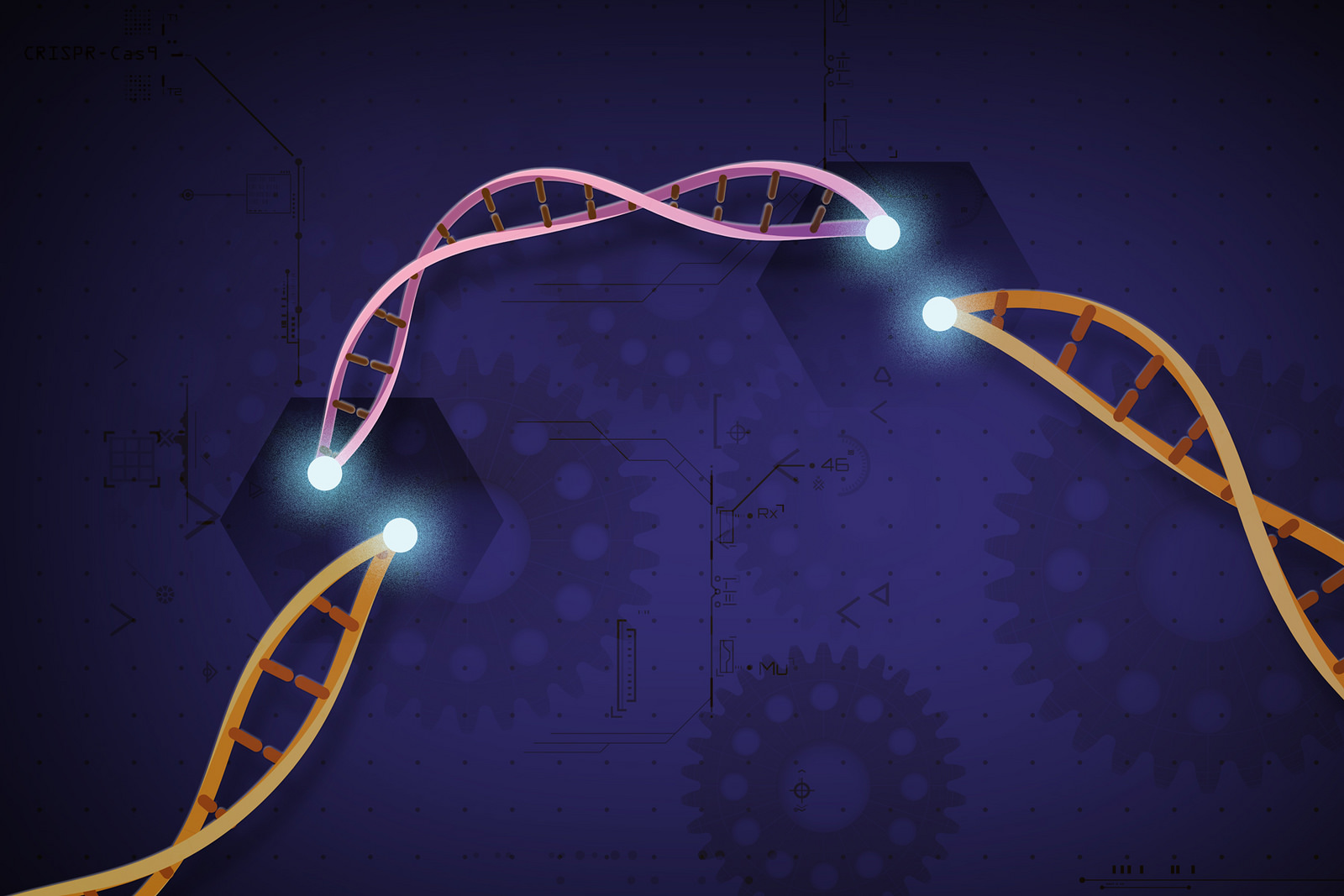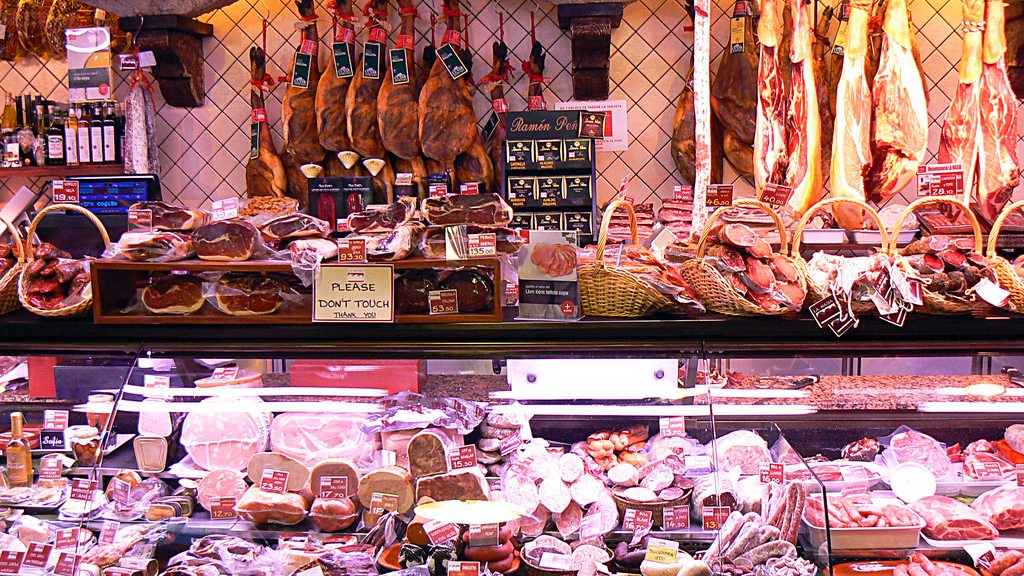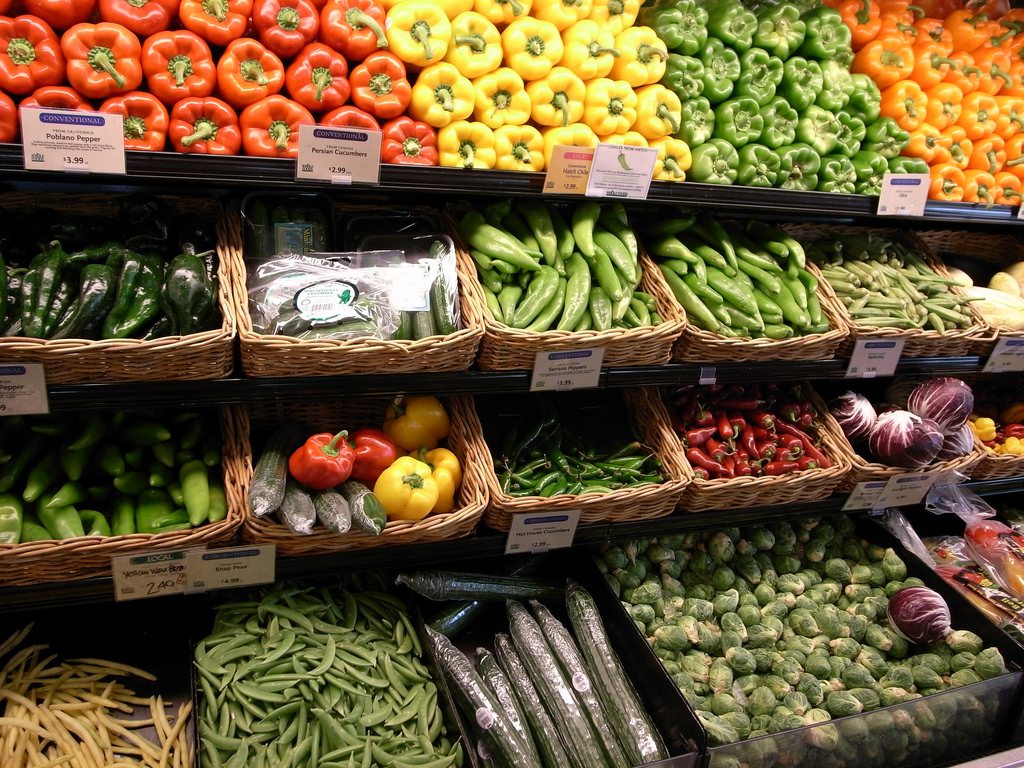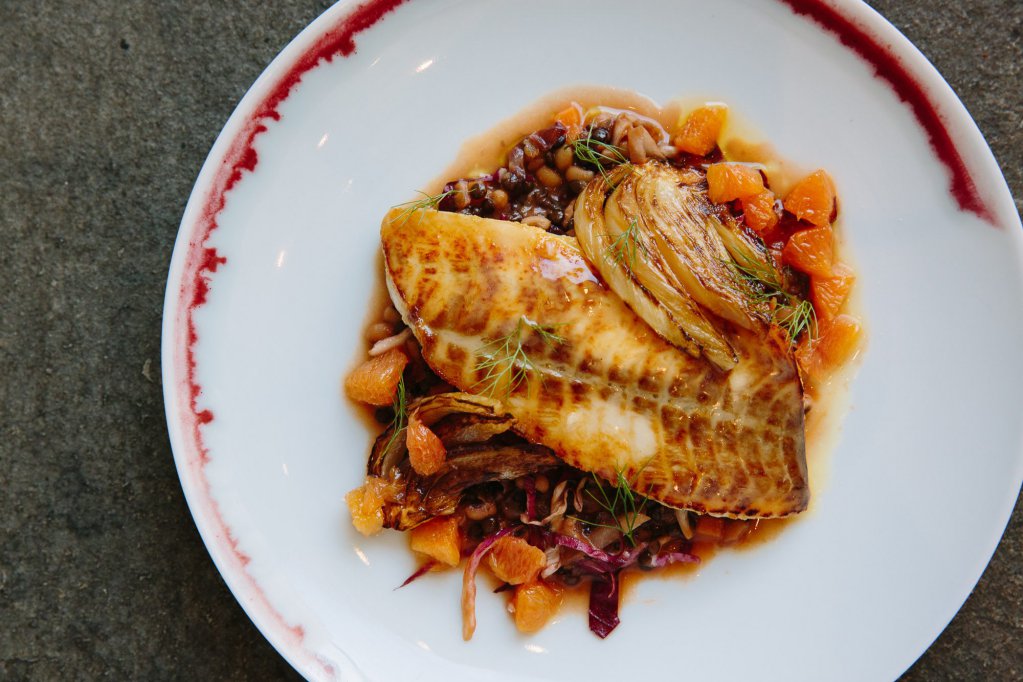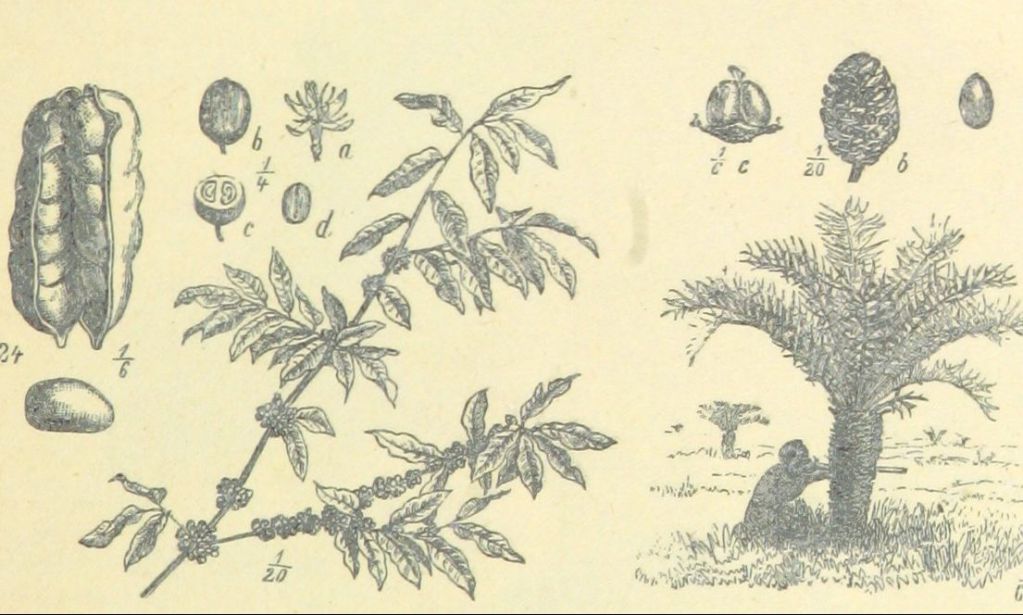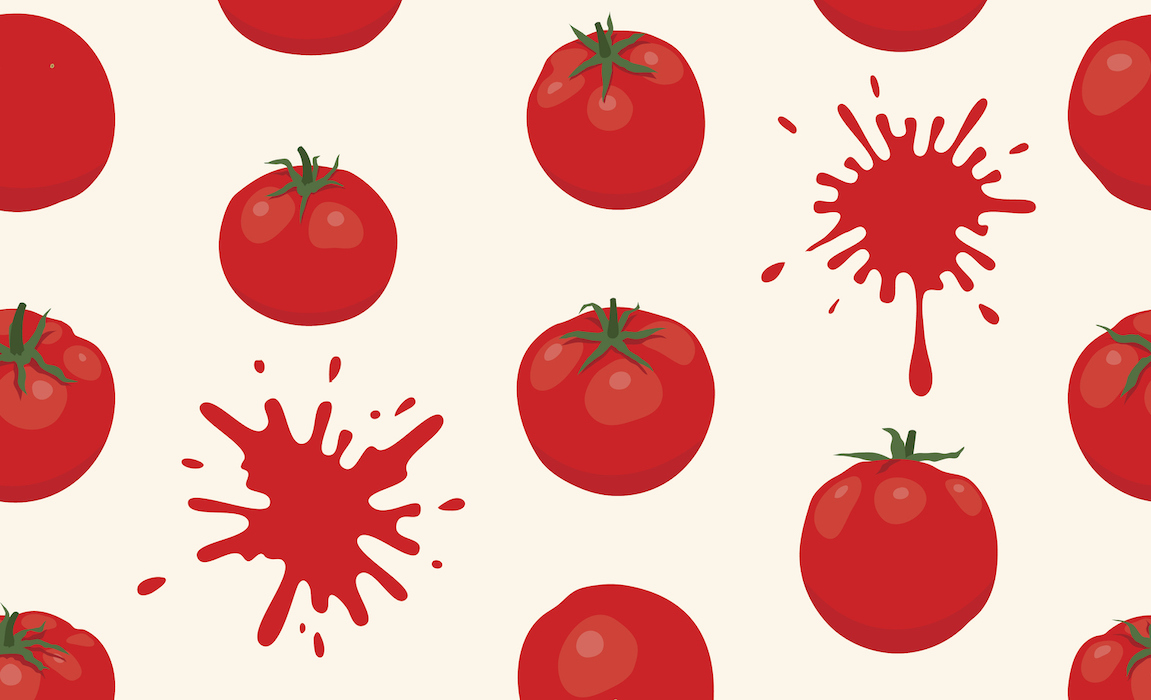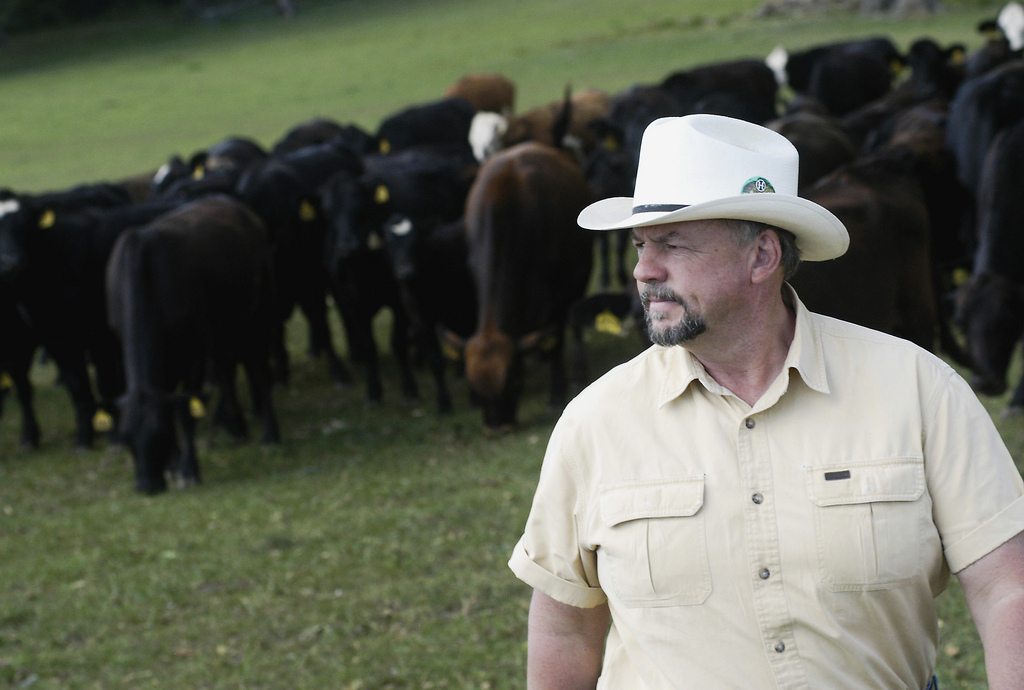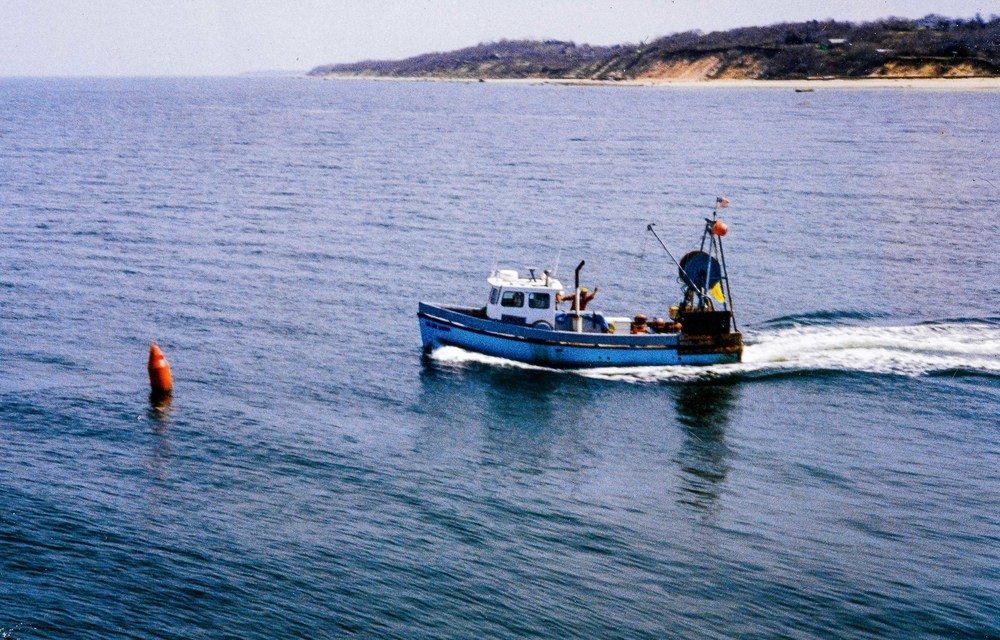
Blue Moon Fish
My husband is a commercial fisherman in Eastern Long Island, working from his boat, the Blue Moon; my job is to sell his catch. We’ve been very successful thanks to the NYC Greenmarkets, where we sell the majority of our fresh local fish direct to the customer. The catch? I’ve got to talk it up with perhaps the most demanding consumer ever—the educated big city foodie—as well as folks of all ages, from countries all over the world and all states of the union, and all levels of cooking competence, from famous chefs to those who can’t boil water. The fisherman and I often joke that we talk to more people in one day in NYC than in an entire week in our small North Fork town.
 Blue Moon Fish
Blue Moon Fish Stephanie Villani explains everything from brining to overfishing to her customers
So as patiently as we can, we tell customers that no, we don’t sell Chilean sea bass and shrimp, because we only sell what we catch, and you can’t catch shrimp and Chilean sea bass on Long Island Sound. On the other hand, yes, there is a huge squid fishery off New York and New Jersey, and squid is delicious if you cook it right. I explain how much brown sugar is in the brine for my smoked fish (4 cups per 5 gallons), and when herring season should be starting (in the winter, depends on the weather), and did you hear we had baby Beluga whales in the Sound this summer, followed by a pod of 100 dolphins?
I especially love sharing good news, such as wild salmon being spotted on the East Coast for the first time in 300 odd years (true story), or an excellent bay scallop harvest. There is such a barrage of bad news about the state of our fisheries that it’s nice for people to be aware that there is good news as well.
Sometimes I find that a customer has already made up their mind about some issue and won’t entertain my answer at all. For example, eating any tuna whatsoever will give you mercury poisoning (no, but there is a limit) or that eating fish is like smoking cigarettes. (Uh, no!) I’ve had customers refuse to even consider buying beautiful swordfish because they think it’s endangered, even though according to the NOAA FishWatch, the North Atlantic swordfish population is fully rebuilt. “Rebuilding the North Atlantic swordfish resource is one of the great success stories of fisheries management,” the agency says on its website, “not to mention that it’s harvested in one of the most environmentally responsible pelagic longline fisheries in the world.
Customers are much more knowledgeable on food policy and sustainability than they used to be—definitely a good thing. But there’s more to these issues than they’re likely to find on Twitter or Facebook. Commercial fishing is a vast industry with many gray areas. Things that are true for industrial farming or fishing supply chains on a global level often don’t apply to what’s going on at the local level.
https://www.instagram.com/p/6-Tf3Gr5p5/?taken-by=bluemoonfishnyc
When you come and talk to my husband and me about fish populations, the answers you’ll receive won’t always agree with what you hear elsewhere, but they are coming from the experience of being out on the water every day. We see big sets of shellfish some years and hardly any other years. We hear stories from the other fishermen (big gossips, by the way) about what they are catching and when, over decades. We talk very critically about the local Department of Environmental Conservation and the studies they perform and the rules they make for us to follow.
These folks care intensely about the sea creatures and the ecosystem that give us our livelihood. An important part of my job is to represent and explain that experience that stands behind the tubs of flounder fillets and coolers full of mussels you see for sale at the market. It’s not just moving product; it’s keeping our ecosystem healthy and keeping our customers educated and making smart choices to support it.

